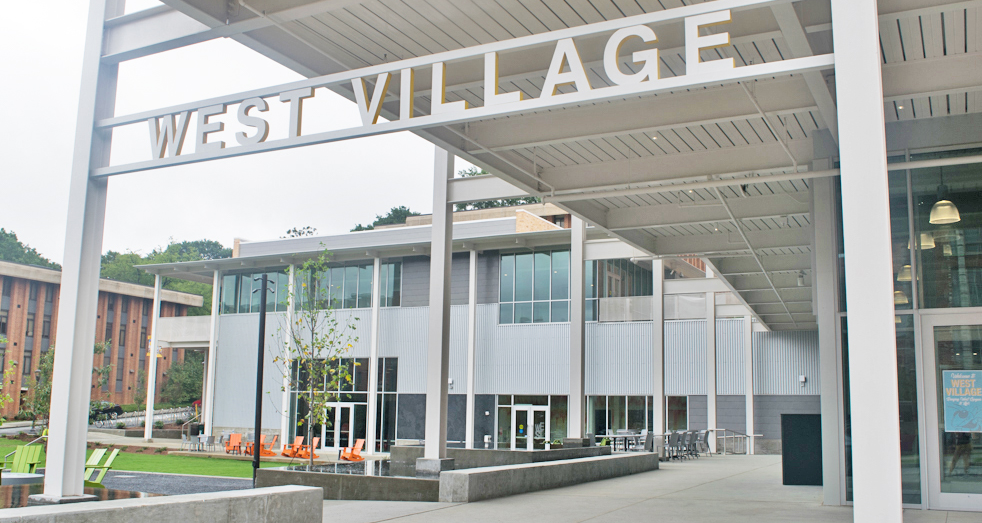Across the Southeast and the rest of the country, Tech is a leading university in sustainability.
From the recently completed Kendeda Building, one of the first carbon negative buildings in the U.S., to the Serve-Learn-Sustain (SLS) academic plan, the Institute truly goes above and beyond in giving back to the environment.
One of the biggest elements of Tech’s sustainability plan is its dining project.
“Our purpose is simple — to make a positive impact on people and [the] planet,” the Dining Services website said. “Our sustainability plan starts with people. People are at the center of everything we do and so we’re focused on equity and wellbeing of our employees and consumers, the people in the communities where we live and work, as well as the people in our supply chain. We also focus on the wellbeing of our planet by minimizing environmental impact across all of our operations, from the foods we serve and facilities we operate to the vehicles we drive.”
From the ingredients purchased to the container the food goes out in, every element of the dining process is implemented in a way that reduces the maximum amount of energy used and waste produced.
Campus dining purchases local, seasonal and responsibly sourced ingredients as often as possible and conserves waste by using less single-use materials and by donating excess food.
Even the way food is produced is done in a way that reduces Tech’s environmental footprint. The dining team keeps a close watch to make sure as little energy and water is used as possible.
A prime example of this is the leftover fryer oil that is converted into biofuel. When food is distributed to students, it is done so in compostable containers, reducing the single-use plastic that gets thrown away.
Tech intentionally does not use plastic trays, which according to a 2009 study conducted by the University of California Santa Barbara, lowers the average waste generated by a person by 54%.
The most well-known aspect of dining sustainability, as seen in the form of bins around campus, is its composting project. Since the mid-2010’s, dining halls across campus have been collecting compost, organic materials that can biodegrade quickly into the soil.
In 2018, the opening of the West Village Dining Commons, which is located on West campus marked the first time compost bins were used in the student seating areas of a dining hall.
Since then, CompostNow has opened at the Graduate Living Center and North Avenue Apartments.
Currently, composting is available at 13 different locations: 6th Street Apartments, Cloudman Residence Hall, Crecine Apartments, Graduate Living Center, Harrison Residence Hall, Howl Residence Hall, North Avenue Apartments, Woodruff Residence Hall, the Exhibition Hall/Rising Roll, North Avenue Dining Hall, West Village Dining Commons, the Kendeda Building and the Krone Engineered Biosystems Building
This rapid change was primarily brought on by the student body, who argued that composting directly reinforced Tech’s goals in sustainability for waste diversion.
Presently, there are student organizations at Tech pushing sustainability even further through their individual work, including the Student Government Association (SGA) Sustainability Committee (@sga_susco), Students Organizing for Sustainability (SOS) (@sos.gatech), and Engineers for a Sustainable World (ESW) (@gt.esw).
Anyone looking to get involved with sustainability on campus can follow any of these organizations on social media and attend
their events.
From both the administration and student body, a generous amount of time and thought goes into campus dining sustainability. For more information, visit georgiatech.campusdish.com.
